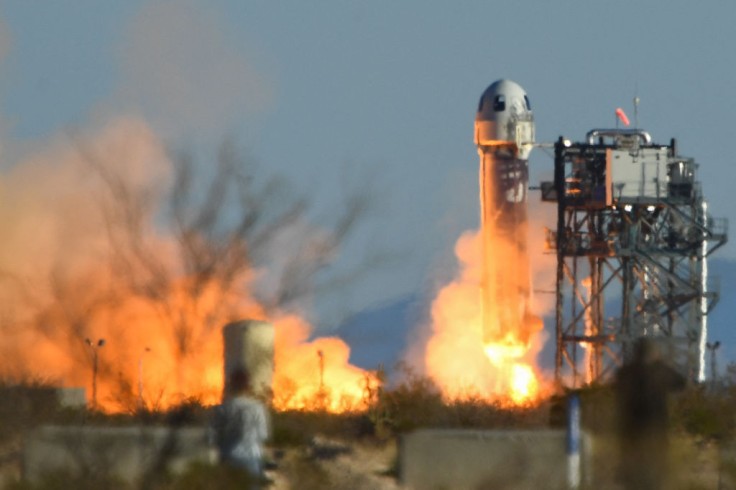Blue Origin still doesn't know what happened with its New Shepard rocket.
Jeff Bezos' private space company has yet to figure out what caused its New Shepard rocket to experience the anomaly it encountered six months after experiencing it.
The private space company has yet to launch another New Shepard rocket and mission since the anomaly occurred, probably due to the investigation's progress.

Blue Origin Investigation Follow-Up Details
Blue Origin New Shepard rocket chief architect Gary Lai stated at the Next-Generation Suborbital Researchers Conference that the company is still investigating the Sept. 12 uncrewed mission, designated NS-23, which encountered the previously mentioned anomaly, per Space News.
He added that the company is still investigating the anomaly and what caused it to appear, promising that Blue Origin will uncover what happened that day. Although he couldn't mention anything specific during the event, such as timelines or plans for when the company will resolve the issue, he did reveal that Blue Origin intends to be back in business as soon as it is ready.
You may remember that the NS-23 mission ended abruptly when an anomaly caused an issue with the New Shepard's rocket booster, causing it to fail, according to The Verge.
Space.com mentioned in its article that New Shepard's reusable booster hit the ground hard and was presumably destroyed. However, its upper-stage capsule managed to activate its emergency escape system and returned safely to Earth, landing safely under parachutes.
Fortunately, no lives were lost in the mission since NS-23 is uncrewed, with it only carrying scientific instruments to suborbital space, per Gizmodo.
Lai mentioned there was nothing abnormal about the conditions during the launch of Blue Origin's NS-23 mission, with him saying "with certainty" that the acceleration environment the rocket experienced was exactly what Blue Origins predicted.
He added that the acceleration environment was "exactly as the astronauts were trained for," and everything went according to plan."
There is a difference between crewed and uncrewed missions, though. Blue Origin uses the New Shepard RSS First Step for all of the six passenger missions it launched in the past, while the recent payload-only launches used the RSS H.G. Wells,
Whether this change may have caused the anomaly is still up for debate, however. NS-23 is Blue Origin's second failed launch to date, with its debut launch in 2015 being the first.
For that event, an anomaly caused the New Shepard's booster to crash-land, destroying itself in the process. However, its capsule still managed to reach suborbital space as planned.
Blue Origin's Future Missions
It seems Blue Origins will be focusing more on space tourism in the future. Lai mentioned that dedicated payload flights like NS-23 would be less prominent going forward as the company plans to launch suborbital space tourism flights - a move that would surely dictate Blue Origin's priority and agenda.
He predicted that the company will support around two dedicated payload missions a year, much like it always did. However, they will not become much of a priority given the company's stance on suborbital tourism.
However, Lai believes that space tourism and delivering payloads to suborbital space could be done simultaneously through flying payloads on New Shepard's propulsion module.
Related Article : Blue Origin is Heading to Mars Thanks to Team Up with NASA









